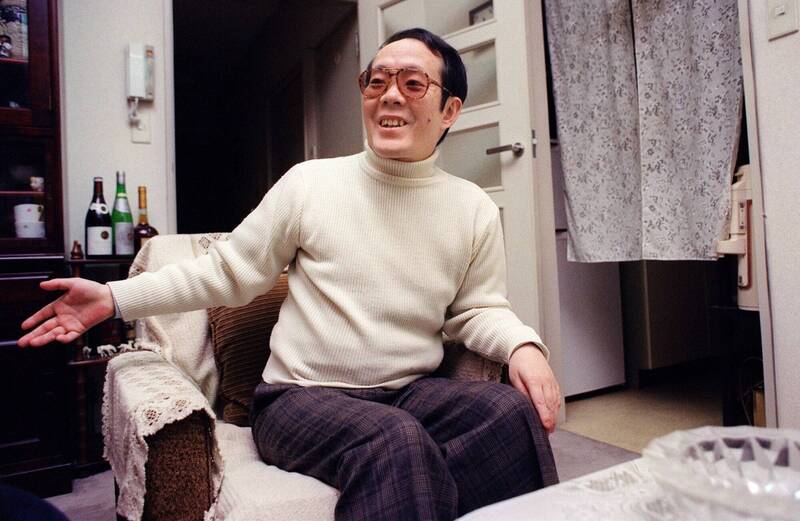"Kobe Ogre" Sagawa Issei died of illness at the age of 73.
He once killed a Dutch female college student and ate human flesh, but he never went to jail for this, and then returned to China to write a book about his experience of cannibalism.
(AFP file photo)
[Central News Agency] Kazumasa Sagawa, known as the "Kobe Cannibal" who committed the cannibal incident in Paris, died of pneumonia on November 24 at the age of 73.
He once killed a Dutch female college student and ate human flesh, but he never went to jail for this, and then returned to China to write a book about his experience of cannibalism.
Japanese media reported that Issei Sagawa's younger brother, Jun Sagawa, said through a publishing house on the 1st that Issei Sagawa died of pneumonia in a Tokyo hospital on November 24.
Please read on...
Agence France-Presse reported that Sagawa Jun and Sagawa's friends said in a statement that the funeral was limited to family members and no public memorial service was planned.
In 1981, Sagawa, who was born in Kobe City, Hyogo Prefecture and was studying in Paris at the time, committed cannibalism and shocked the world.
He invited his Dutch classmate Renee Hartevelt to his home, shot her, raped her, and ate part of her body in the next few days.
Sagawa later attempted to dump his body in the Bois de Boulogne.
He was arrested days later and confessed to the police.
However, French medical experts decided in 1983 that Sagawa's condition was unfit to stand trial, and he was not charged because he was in a "state of mental loss" when he committed the crime.
He was initially housed in a mental institution before being deported to Japan in 1984.
Hartwilt's family vowed at the time to have Sagawa prosecuted in Japan so that "the murderer will never go unpunished."
As soon as Sagawa returned to China, he was judged to be of normal mind by the Japanese authorities. The only problem was "abnormal personality" and he did not need to be hospitalized.
However, because the French side considered the case closed, the Japanese authorities could not obtain the case information.
Sagawa made no secret of his crimes and capitalized on his notoriety, including writing a novel-like memoir, "In the Fog," in which he describes the murder in vivid detail.
Japanese playwright Tojuro wrote "Letter from Sagawa-kun" based on this case and won the Akutagawa Award in 1982.
Sagawa's younger brother Junya Sagawa is the author of "The Ogre's Brother".
The details of the case are horrifying, and Sagawa has no regrets, but he is still well-known. After returning to the country, he is often interviewed by domestic and foreign media, and even participated in the shooting of pornographic movies.
His case has also inspired songs by the Rolling Stones and The Stranglers.
Sagawa, who lived with his younger brother in his later years, is said to have had to use a wheelchair after experiencing a series of health problems including a stroke.
But he has never expressed regret or want to reform. In an interview with Vice media in 2013, he said while looking at the posters of Japanese women: "I think they will taste delicious."
Sagawa has described the details of the case and his continued fascination with cannibalism in other interviews and in the 2017 documentary "Caniba."
The two documentary filmmakers spent months with the Sagawa brothers and later said they felt "very conflicted" about the experience.
Verena Paravel, one of the directors, said: "We were disgusted and obsessed with it, and we wanted to understand it all."
